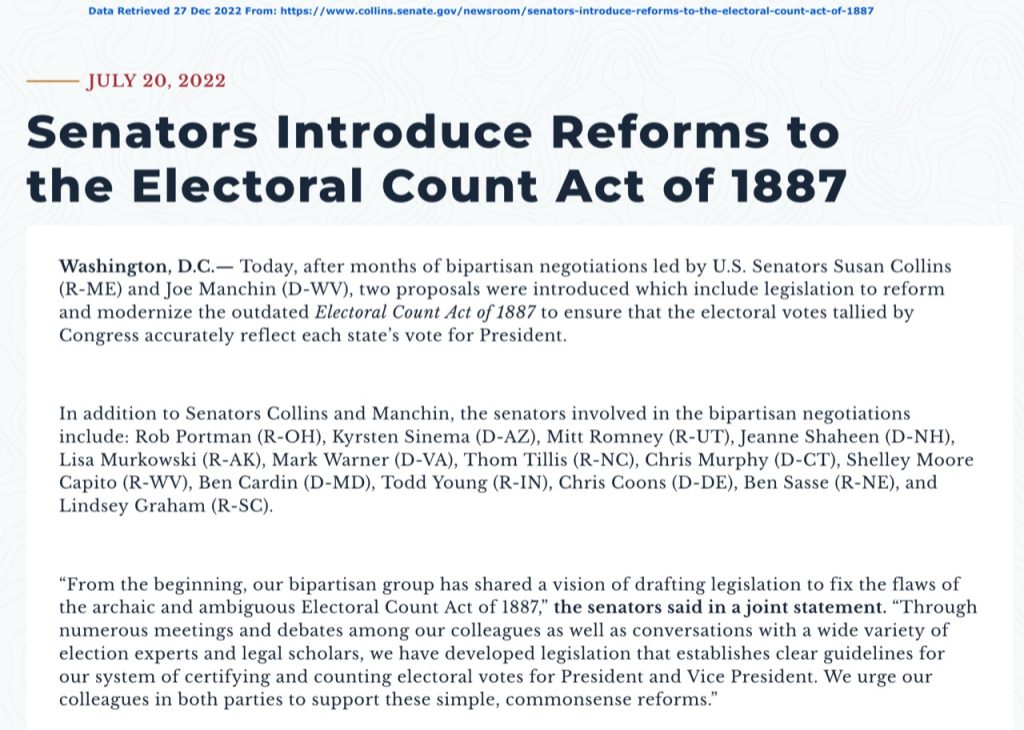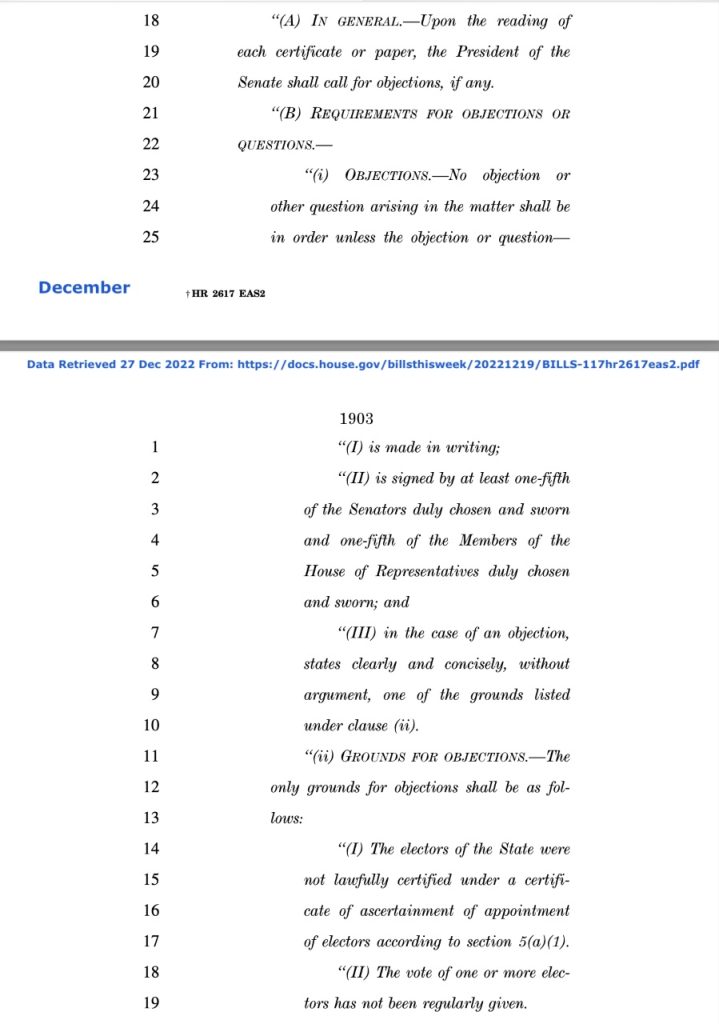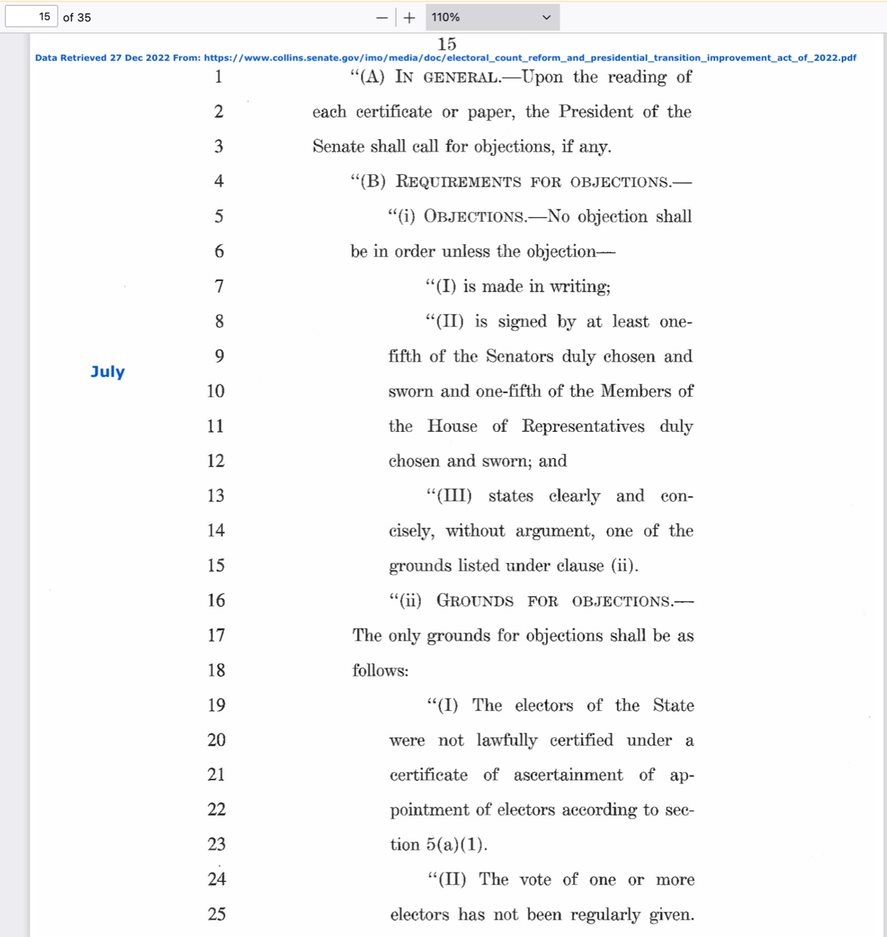It’s the holiday season, a time for visiting family and friends, sharing meals together, exchanging presents, and reflecting on the year. Everyone is busy creating those special moments that become fond memories. Well, maybe not everyone.
Christmas week, Congress created a special moment, but not one that will be filed in the fond memories column.
In July, a group of senators had crafted legislation to change U.S. Code on how the electoral votes are counted. The legislation would have restricted the ability for any senator or representative to make an objection during the counting of electoral votes for the president. The legislation never went anywhere because it didn’t have enough votes to pass.

Not to worry. If legislation can’t pass on its own, why not just insert it into something that would pass? On Dec. 22, they tucked it away in the more than 4,000-page government funding bill.
Here are images taken from the July legislation juxtaposed to what was tucked into the December government spending bill.


Congress used a spending bill to alter U.S. Code Title 3, Chapter 1, Section 15; the counting of the electoral votes and rules for objections.
The previous text said: “Upon such reading of any such certificate or paper, the President of the Senate shall call for objections, if any. Every objection shall be made in writing, and shall state clearly and concisely, and without argument, the ground thereof, and shall be signed by at least one Senator and one Member of the House of Representatives before the same shall be received.
The new language says: “Upon the reading of each certificate or paper, the President of the senate shall call of objections, if any. No objection or other question arising in the matter shell be in order unless the objection or question is made in writing; is signed by at least one-fifth of the Senators duly chosen and one-fifth of the Members of the House of Representatives duly chosen and sworn; and in the case of the objection, states clearly and concisely, without argument, one of the grounds listed under clause (ii). The only grounds for objections shall be as follows:
The electors of the state were not lawfully certified under a certificate of ascertainment of appointment of electors according to section 5(a)(1).
The vote of one or more of electors has not been regularly given.
Under the new rules there must be at least 20 senators and 87 representatives agreeing on the objection for it to move forward. If one state had election issues and has an objection, that state would have to convince several other state senators and representatives to side with them. Or, if the governor of a state bypassed the states election laws, that would not now be grounds for objection.
The changing of the code has made it impossible for an objection to ever happen again. This is what highly partisan legislative bodies do — shut off debate.


